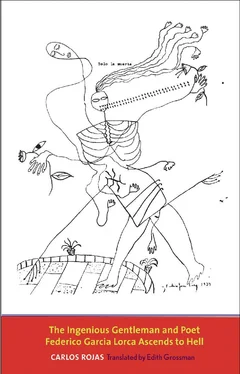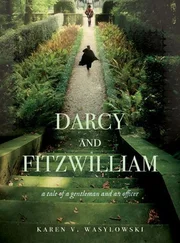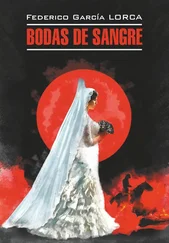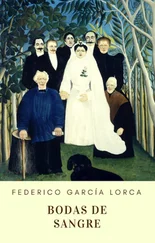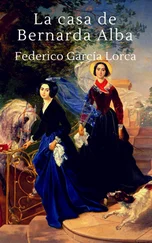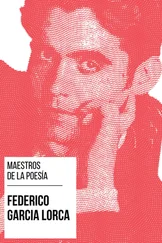Forty bullfighters were seriously wounded that year. Twelve, one a month, died at various points around the Iberian Bullring. Ignacio Sánchez Mejías had already retired twice from bullfighting, always for the same reason: “At my age, a man doesn’t appear in public in pink stockings without looking ridiculous.” Two more times he had renounced his decision and returned to the arena. He was rich and aging, very old for the bulls at forty-three, his age on the afternoon he was gored. At the beginning of August he appeared in La Coruña with Belmonte and Ortega. When Belmonte entered the ring for the kill, he had an Ayala bull, and the sword pierced the back of the animal’s neck, pulling out of the bullfighter’s hand. Incredibly, the bull leaped to the seats and fell, his horns in the neck of a spectator, slashing him open from ear to ear. Not yet twenty, he died in the infirmary, unconscious and bleeding. At the end of the fight, a telegram came from Madrid announcing the sudden death of one of Ortega’s brothers. Ortega left by car, accompanied by his cousin and Dominguín, his agent. They were still in Galicia when they had an accident and Paco Caballero, Ortega’s relative, died immediately. The bullfighter, overwhelmed by so much misfortune, refused to participate in the event scheduled in Manzanares on the eleventh. The night before, in Zaragoza, where he had just arrived after fighting in Huesca, Sánchez Mejías agreed to replace Ortega, against the advice of his entire crew. The following afternoon they thought he was too fatigued to face more Ayala bulls without running serious risks. The Gypsy toreadors in his crew kept silent about their reasons, at once more terrible and more inevitable. For the past two or three weeks, Ignacio had smelled to them like a dead man. The stink of putrefaction and withered violets that non-Gypsies never could detect was intolerable in small rooms, like the ones in hotels. The flamencos had to make an effort not to tell Sánchez Mejías about it.
They say Ignacio was exhausted when he arrived in Manzanares after countless hours of traveling on roads ablaze with light and past fields of cicadas. He appeared with Armillita and Corrochano on the afternoon he was gored, when the first bull was his: another Ayala animal, dark and powerful, named Granadino. Sitting on the base of the barrier, the bullfighter made a contrary, suicidal pass. Urged on by the crowd, he tried to repeat it. That was when Granadino gored him in the left thigh and threw him over the barrier. Still conscious, he asked to be taken to Madrid. He had seen the town’s infirmary before the bullfight and thought it was poorly staffed and inadequate. Still, they had to care for him first in Manzanares and bandage the wound, which was bleeding profusely. Perhaps the wound would not have been fatal if it had been treated correctly at the bullring. Nonetheless, from that moment on misfortunes ensued in frantic disarray. On the way to Madrid the car broke down and no one wanted to take Ignacio in his for fear he would stain it with blood. It took forever — hours and hours — to repair the damage and get the vehicle going again. In the meantime, it was necessary to change Sánchez Mejías’s dressings because they were beginning to rot in the hellish heat. When they finally reached Madrid and Dr. Segovia’s clinic, he hadn’t lost consciousness, but a very high fever made him delirious. He shouted for his son and for me. That man who did not seem to have been born of woman but simply carved out of oak had become a child. He howled, asking us to play Simon says and corner tag with him.
I refused to go into the clinic or the room I would call iridescent with death throes in the most painful of my poems. I didn’t leave the sidewalk, where I spent long hours asking every visitor how Ignacio was. They replied that he was getting worse by the hour and was losing hope. They looked away, not daring to meet my eyes because my attitude irritated them. They believed that only an irrational fear, the supposed panic of an effeminate man in the face of death, kept me from crossing the threshold of the building. I would have liked to shout at them right there, in the middle of the street, Gide’s declaration of principles: Je ne suis une tapette! Je suis un péderaste! (Know I’m not a fairy! I’m a pederast!) Death didn’t terrify me so much that I thought it was contagious. I was never that irrational, though I didn’t recognize the logic of the universe and don’t accept the senselessness of hell. In fact, there was no one who demonstrated greater courage than I did in my poem when I faced Ignacio’s destiny. If there was, he left no evidence of his manhood, for the response Alberti dedicated to him compares unfavorably to mine. Simply put, I didn’t have the heart to watch Ignacio suffer. To see how gangrene inevitably destroyed him until he was reduced to someone he had never been before: a dead man.
Ignacio himself must have believed in his delirium that I refused to see him because of a homosexual’s weaknesses. In dreams his eyes would appear to reproach me for that. They were always very large and open in those nightmares of mine, his gaze fixed and hard in his virile, sensitive face, as broad between the temples as it was long. Under his porphyry forehead, which baldness enlarged in his last years, those motionless eyes denounced and pursued me. Even though I knew I was dreaming, I couldn’t wake up or escape his vengeful hounding that reproved me for my absence and the crime of being born homosexual, as he could have blamed me for having been conceived a perfect man.
Constantly pursued by those eyes, between sleep and waking I must have imagined the main lines of my elegy before he actually died. Like the eyes of the apocalyptic monsters, fixed eternally before the man of sardonyx and jasper, I thought Ignacio’s would not close at the moment of the final goring. I told myself he would keep them open after he was dead and no one ought to cover them with handkerchiefs. Eternity would transform him into a dark minotaur, beast and victim combined into identical sacrifices. None of those machos, the ones whose bones resonate like footsteps or flints, would dare to see himself in his unmoving gaze in the middle of the funeral chapel, as I, for very different reasons, did not have the courage to see him in his agony.
It was ironic that Ignacio, the most valiant bullfighter who ever lived, would reprimand me for unmanly cowardice. Yes, ironic, since in other circumstances he had meekly and shamefully humiliated himself before me. We all saw him at the festival in Córdoba, holding the muleta, down on one knee in front of a bull as gigantic as one of the stone bulls in Guisando, while with his other hand he smacked the animal’s snout to make it charge. If it had, he would have been run through because the tips of its horns were scratching his chest. His temerity was not completely blind, for he knew the bulls of that herd too well to fear an attack. Still, if he’d had a presentiment, he would not have abstained from testing fate because in his immense daring, Ignacio was immune to fear.
I’m referring to the physical, for he very well might have felt moral fear. Two or three years before his death, he and La Argentinita had been lovers for almost ten. I was very fond of La Argentinita, who played the Butterfly in my first, very booed piece for the theater in two acts and a prologue. And I would have to dedicate my elegy for Ignacio to her, although at the time none of us could have foretold that. La Argentinita always had the unequivocal affection for me, like a mother’s or a sister’s, that some women feel for men like me. A dancer acclaimed throughout Europe, she agreed to appear in that distant play by a kid barely twenty years old and never blamed me for its failure. I was never forgetful about gratitude, though I was about rancor, and I always remembered her courtesy. Afterward, when my poems and other plays of mine made me well known, she celebrated them and told me she had always believed in my talent and the success that fate would bring me. From the beginning she confided to me her affair with Sánchez Mejías, to whom she held on immediately and irrevocably, though she had loved and enjoyed other men before him. She knew Ignacio would not leave his Gypsy wife, sister of the Gallos, who was both resigned and jealous, or his farm in Pino Montano, or his son, who, to the consternation of his father, insisted on being a bullfighter. (“If a broken body has to come into my house, let it be mine and not my son’s,” Argentinita confessed that Ignacio had said to her.) Only now, in this spiral of hell, do I understand how those words of his were transformed into other lines in my elegy, without my being able to see it, when I state in the poem that no one knows his body, not the stone where he lies, not the black satin where he is destroyed. Even if he left his wife, his son, and his country house, Argentinita went on, shaking her head, Ignacio would go back to them, just as he returned to the bullring after his retirements. “It’s his destiny, you know? He can’t avoid it, and perhaps it’s also written that he’ll die in the arena.”
Читать дальше
